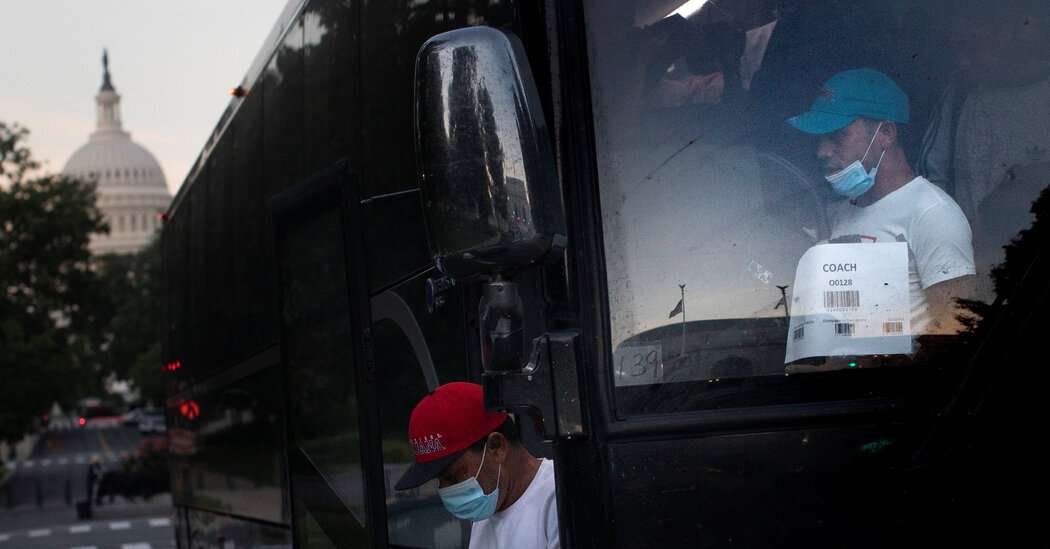
About 15 faith and community-based groups in Washington have opened their doors to the migrants, offering them meals, showers and hygiene items during daylight hours. But the increase in the frequency of buses, from two to four a day to now sometimes eight, has depleted donations and exceeded capacity, and many volunteers have contracted Covid-19, said Ms. Scherff.
“The mayors have been playing into the Republican governors’ hands,” said Adam Isacson, a scholar at the Washington Office on Latin America who studies the border.
“Of course they’re making noise about the migrant arrivals because those who need shelter are a strain on their cities’ social services,” he said. But “the tenor of their comments,” he said, is giving the governors ammunition to push for a clampdown on immigration, including such measures as erecting border walls and eliminating asylum.
On a recent night, migrants climbing down from three buses were greeted by volunteers and staff from SAMU First Response, an international aid organization that has received some funding from the Federal Emergency Management Agency and began operating in Washington in late June.
They were given water, pizza and granola bars, and some were provided tickets for onward travel. By 1 a.m., most had settled for the night on the marble floor of the East Hall of Union Station. Others, from earlier buses, were forced to sleep on the streets. It created an unusual tableau: unhoused Americans on one side of the plaza; on the other, migrants with their meager belongings splayed on the ground — all within sight of the Capitol.
Tatiana Laborde, SAMU’s managing director, said her organization had enough funds to buy tickets to other destinations for about a third of the migrants for whom they were providing services. The group’s shelter in Montgomery County, Md., could not provide long-term housing, she said.




